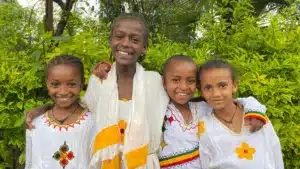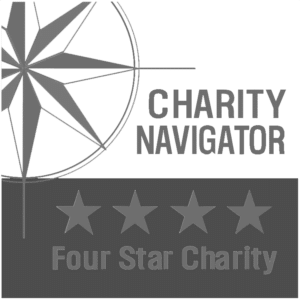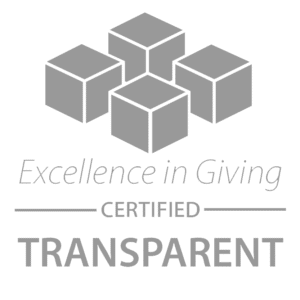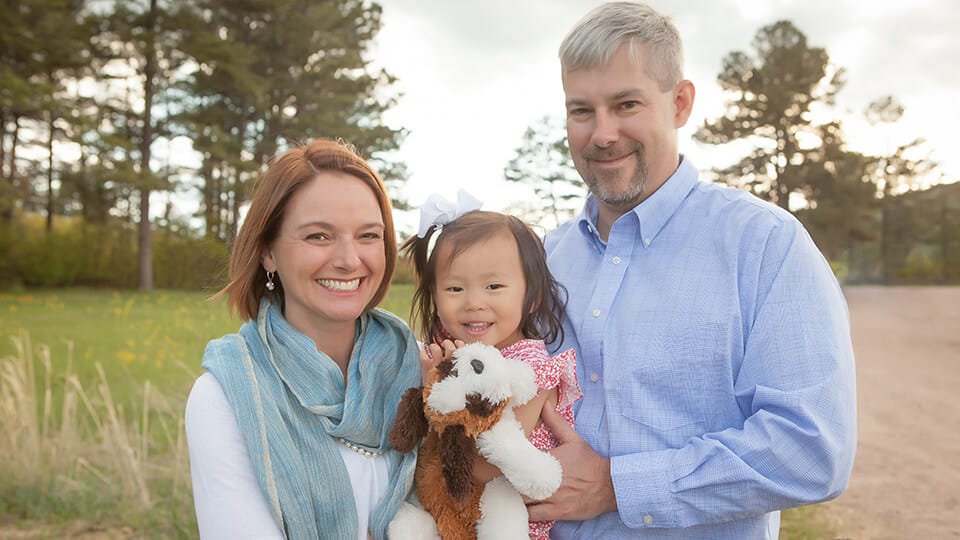
Ethics play an important role in intercountry adoptions. Many of the children and families served through intercountry adoption are in particularly vulnerable situations and therefore are at an increased risk of abuse, neglect, exploitation, or mistreatment. Due to this increased vulnerability to the children and families served, all parties must be committed to providing ethical, child-centered services.
In 1993, the Hague Convention on the Protection of Children and Co-operation in Respect of Intercountry Adoption was signed into effect. The objectives of this international Convention are to establish safeguards to ensure intercountry adoptions take place in the best interests of children and respect the child’s fundamental rights, and to establish a system of cooperation between countries to ensure those safeguards are respected preventing the abduction, sale of, or trafficking of children.
The United States, as well as over 100 other countries, have signed on as signatories to the Convention, committing to abide by the Convention’s standards of practice for intercountry adoption. The United States has established laws and regulations to implement the Hague Convention within the United States, and any agency providing intercountry adoption services must abide by the established regulations.
So, how do agencies practically and logistically provide ethical intercountry adoption services?
Here are a few key ways in which agencies can do so:
- Agencies should provide intercountry adoption services in foreign countries which have appropriate laws, processes, and safeguards to protect children and families. One such safeguard is being a signatory to the Hague Convention on the Protection of Children and Co-operation in Respect of Intercountry Adoption. However, even countries which are not signatory to the Hague Convention can establish regulations and processes to help ensure ethical intercountry adoptions.
- The U.S. regulations implementing the Hague Convention require that agencies employ staff and partner with providers who are committed to providing ethical adoption services. Agencies must also provide thorough training and education to applicable staff and providers.
- From the initial information provided to prospective adoptive parents at first contact, agencies should ensure families are knowledgeable regarding the adoption process, the fees and expenses involved in adoption, and what families can anticipate. Transparency is an important aspect of ethical adoption services. During the child referral stage of the adoption, agencies provide families with information received concerning an adoptable child, review that information with the family, and provide families the opportunity to review the information with a physician.
- Ensuring families are prepared for the adoption process and parenting an adopted child is a core component to providing ethical adoption services. The agency is responsible for providing comprehensive and thorough training to prospective adoptive parents to ensure they are as prepared as possible for the adoption of a child.
Intercountry adoptions involve many individuals and entities, all of whom can work together to ensure adoptions are ethical and in the best interest of the child. Promoting ethical adoptions is a team effort. Many prospective adoptive parents don’t realize they too can play a role in helping ensure intercountry adoptions occur ethically.
How can adoptive parents help promote ethical adoptions?
- Feel empowered to ask the adoption agency questions regarding the adoption process. If something is unclear or there are concerns, bring those to the agency for further discussion.
- Allow adoption agencies to facilitate communication with involved authorities, orphanages, and providers. There may be laws, standards, and regulations concerning contact between prospective adoptive parents and foreign entities and individuals, so it is important to allow the agency to facilitate communication to ensure the adoption is not jeopardized by engaging in prohibited communication. While traveling in the foreign country, be sure to keep the agency updated on any communications or meetings occurring in the foreign country.
- Protect any social media presence, relationships, or communications. Be cautious when it comes to engaging in social media relationships or connections with individuals or entities involved in the adoption process. Families should not engage in social media relationships with foreign orphanages, caretakers, or others involved in the adoption process until after the adoption process is complete.
- Do not make any payments outside of what is outlined in the fee schedule/agreement without first discussing with the agency. In many countries, the need for assistance is so great and prospective adoptive parents have such a strong desire to help. However, financial assistance could possibly be seen as a “bribe” or “incentive” and jeopardize the adoptive placement. The agency can assist in navigating these complex situations and help provide guidance.
- If something is observed that causes concern, immediately notify the agency. The agency’s primary role is to protect and advocate for children and families, and the agency can assist in handling any concerning situations that arise during the adoption process.
We can all take an active role in protecting vulnerable families and children, and ensuring adoptions take place ethically and in the best interest of children! Being an advocate and proponent of ethical adoptions not only protects your adoption process, but also helps contribute to the continuation of intercountry adoptions around the world!
Curious about adoption?


